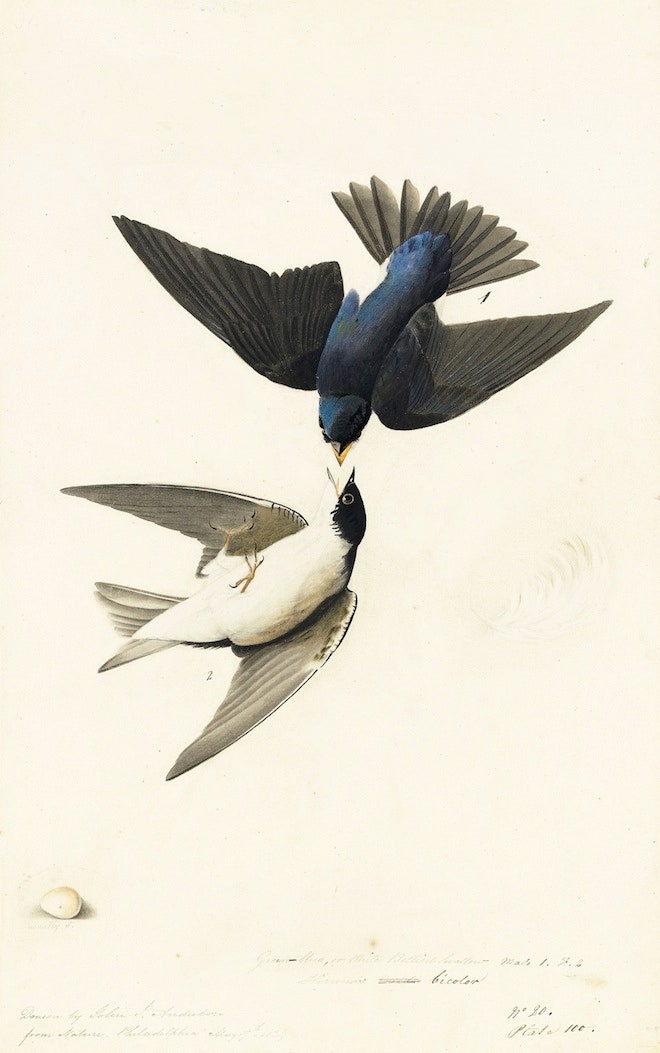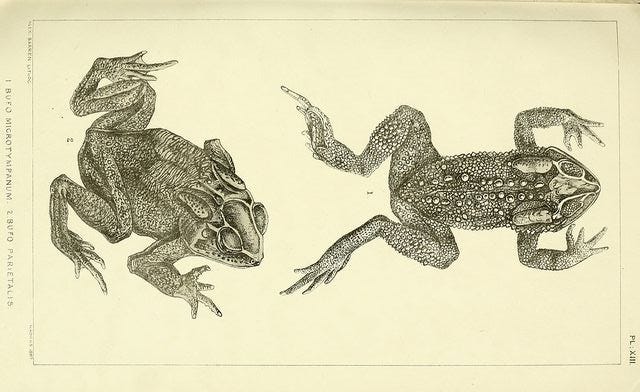Some Thoughts on Orwell's "Some Thoughts on a Common Toad"
This morning, I watched two swallows feed their young in a nest in the rafters of the Island Hall where I am currently living and working - St Agnes, Cornwall. Later, I read a news story on my phone that a pod of 77 pilot whales had washed up on a beach in Scotland. Most of the whales were dead. The solemn contrast between the two events struck me - the first a story of new life sustained by collaboration, family and ingenuity; the second a story of how these same strong social bonds that could cause animals to prosper might also lead to the mass grave of dozens of whales presumed to be helping a friend in need.
I am also faced with the realities of how I experienced and received these stories from the natural world. The first was in person, almost intimate. I was alone - my experience, up to this point - was unshared and undocumented. Whilst ‘authenticity’ is a word that in many cases proves problematic, it is perhaps the closest word we have to describe such a moment with nature, unadulterated by outside human perception.
By the time I received news of the death of the pilot whales I was already receiving the news through the filter of the reporters, writers and editors whose hands the story had passed through. The images accompanying the story, too, had different implications. Where my own eyes received the swallows allowing me to form my own emotional and informational response to the scene, the image that I received of the whales was made “official” by virtue of its inclusion alongside the documented story - designed to capitalise on the scale of the calamity to maximise profit.
Emotionally, the two stories clearly elicit different reactions. Yet, considering the context deepens the nuance of the difference between my two polar experiences. No one could capitalise on my awe and happiness watching the young swallows being fed, the same cannot be said for the case of the pilot whales. My sadness in the case of the latter story was being engineered for a profit through strategic images and wording. In other ways, the authenticity of my emotional experience when viewing the images was adulterated by the capitalism driven media.
In “Some Thoughts on the Common Toad”, George Orwell discusses how experiencing Spring’s arrival can be viewed as a social equaliser as there is no monetary barrier to the simple act of watching the changing of the seasons. However, in an increasingly screen centred society, in which often one's primary experience of non-human life is through nature documentaries or cat videos on instagram, we must begin to interrogate the source through which we experience natural phenomena. Now we see the changing of the seasons - as well as a plethora of other events from the non-human world through both a metaphorical and media.
The unadulterated “true” experience of nature that Orwell discusses in his essay, for most of us, is an occurrence made rarer and rarer by extinction, climate change and the division literal lens, our experience of nature is mediated by the motivations of mainstream and social between the human world and the natural world. Whilst nature still goes on “unofficially” as Orwell suggests, it seems increasingly difficult to access images of nature that have not been doctored or placed in authors to create capital gain through emotional experience of them. As these experiences become rarer and rarer and proximity to the natural world disappears we must do all we can to protect the ever depleting natural world before animals fade into our phone screens - only immortalised in photos and videos.





